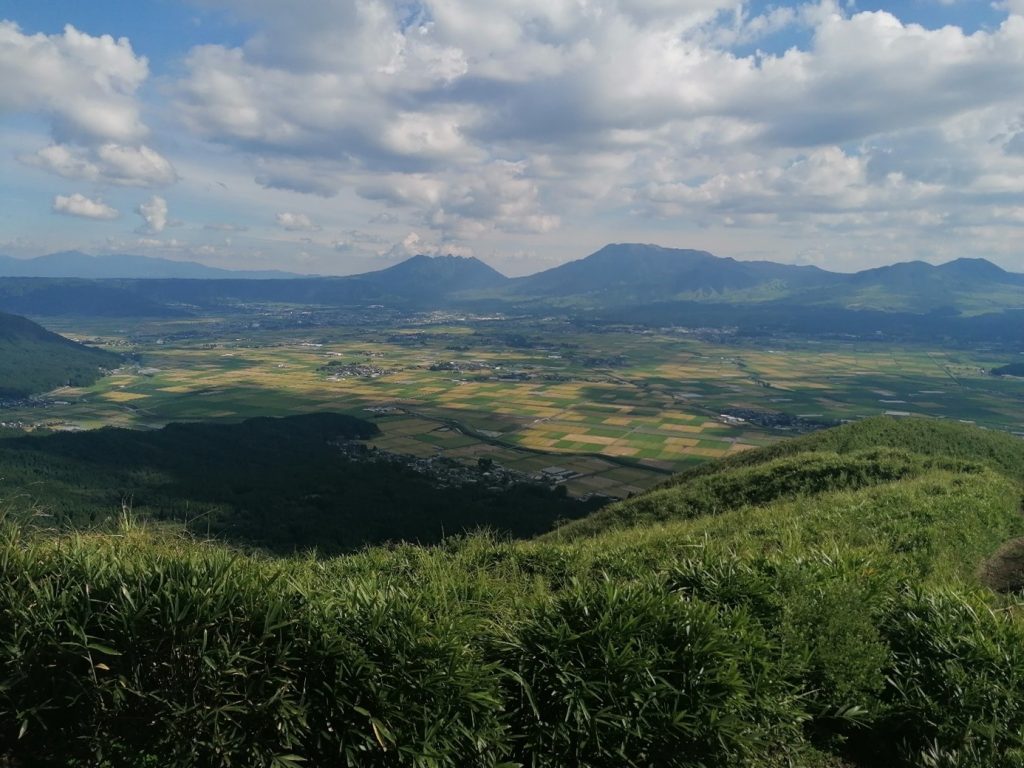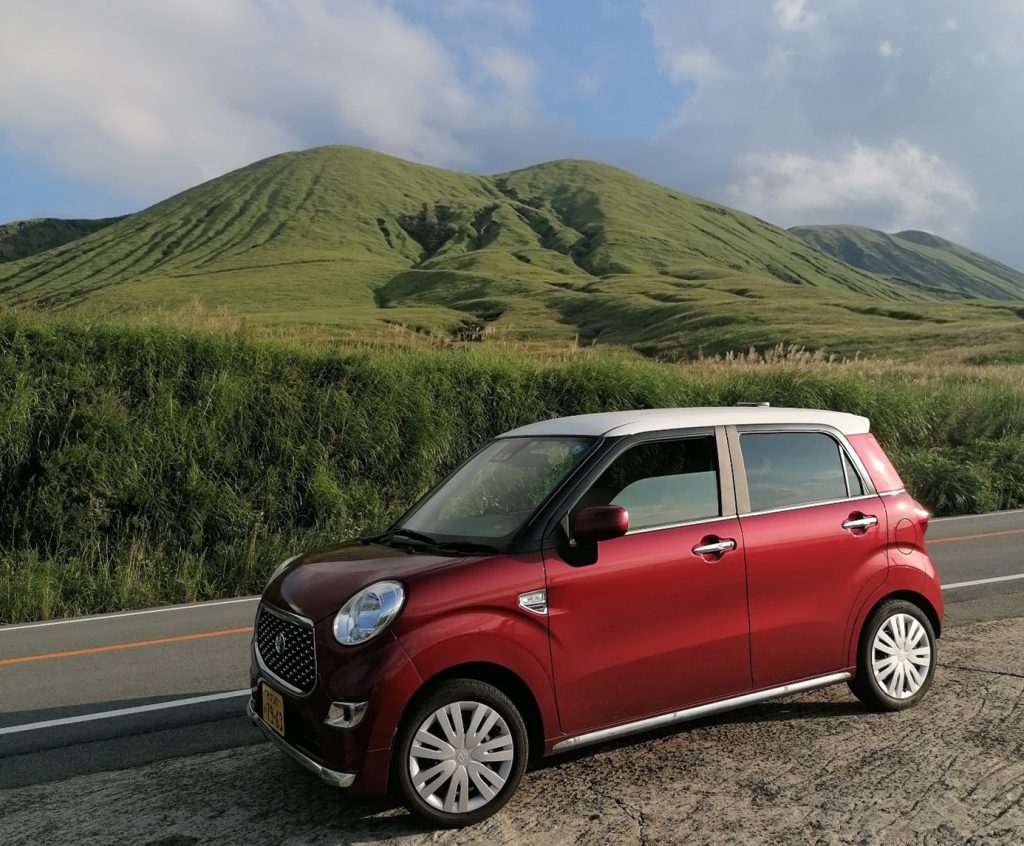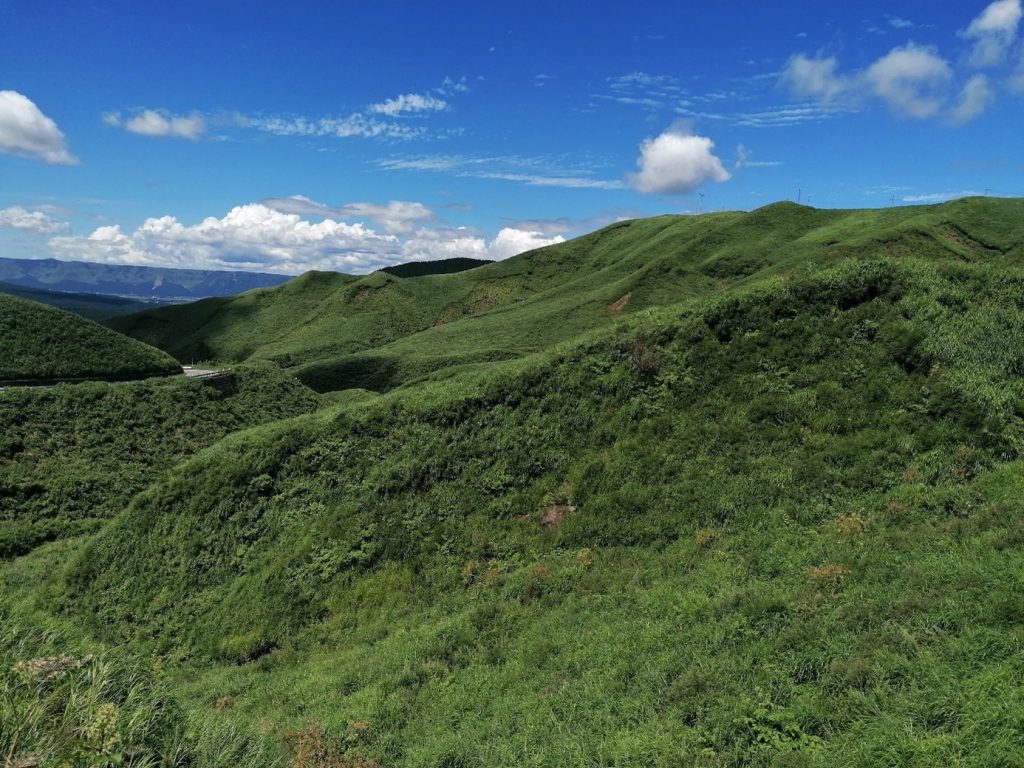by Johanna Mayr
When I was thinking about the topic of my Master’s thesis, I had a dream that my research could have a positive impact on the world. I wanted to learn more about the reality of people’s lives and make these findings accessible to a wider audience so that they could read and become aware of them. As a woman, I have thought about motherhood before and wondered what impact it would have on my life. However, from pregnancy to child rearing, from part-time work to parental leave, and from marriage to relationships, many aspects of family life were only ever a topic I heard about without thinking about. So, the desire arose to help close this knowledge gap, not just for me, but for others pondering similar issues.

Copyright © Johanna Mayr 2023
From mid-August to mid-September 2023, I traveled to the Aso region in Kumamoto. The Aso region is a rural area consisting of a few municipalities clustered around a caldera with an active volcano in the center. It is famous for its wide and flowing grasslands and is popular with cyclists and golfers, but also with researchers like me. I am not the first person from the Department of Japanese Studies at the University of Vienna to make this region the focus of my work. I was therefore fortunate to have a support network of colleagues, researchers and other contacts in and around the region that I could rely on and turn to. After twenty-one interviews with mothers in Aso, I felt that my knowledge gap had significantly filled with new insights and realizations. We talked about the many responsibilities and roles that women carry and fulfill in their daily lives, from their work (both paid and unpaid, both inside and outside the home) to their friendships and hobbies. Although I cannot provide full results at this stage, as my analysis is still ongoing, I would like to mention some interesting points that have already come to my attention:

Copyright © Johanna Mayr 2023
Ms. Fujita (all names have been changed to protect interviewee anonymity), for example, talked a lot about the future and not just her present, which focused on her children, her husband, and her work as a restaurant owner. She wants to create as many memories as possible with her family before her children are grown and off to school or work and before her parents and mother-in-law need her help. The responsibility of raising her children can be hard, but planning small outings with them is also a source of joy and hope. She combines this hope with the ability to cope with future challenges and tough times.
This balance between the joy of having a family and the demanding responsibilities that limit one’s time and choices is described in one way or another by almost all the mothers I spoke to. Mrs. Chiba described it very aptly in the context of her work as a kindergarten teacher: “If I didn’t have a job, I wouldn’t be happy, and if I didn’t have a family, and just this job, I think it would probably have been hard. Yes. I feel like inside of me my work is my ikigai [one’s purpose in life or reason to live], and my family is my shiawase [happiness].” However, she also feels controlled by her work, childcare and her household duties. So much so that in her daily life she feels like she does not have the leeway to think much about more abstract concepts like hope, time, freedom and the future. At the same time, she sees herself as someone living freely, since she chose this life for herself.

Copyright © Johanna Mayr 2023
Another point that was frequently raised was the fact that you have to make compromises in certain areas of your life in order to prioritize others, especially your family and particularly your children. Ms. Fujita has put her hobbies on hold for the time being until she regains more time and freedom as her children become more independent. Ms. Daichi describes that she has actively decided against club activities as a teacher, although this was her actual goal, for which she became a teacher while her children were still small. She also compromises for the sake of her husband, as he is able to teach club activities, partly because Mrs. Daichi prioritizes childcare duties.
These stories of mothers from Aso show that our lives are multi-faceted. Perhaps we are all simply balancing our joys and hardships, trying to outweigh the negatives with the positives and shifting our priorities as our environment and situation allows. Whatever the case, I believe that learning about other people’s experiences is invaluable and that it is important to share these insights. One thing I know for sure is that my research has helped at least one person, myself. And I hope it might be helpful or at least interesting to others, perhaps even to someone reading this blog post.
And if there is one piece of advice I could give to future field research beginners: It’s always okay to ask! I did my best to ask whenever, wherever and whoever. Of course, I was turned down a few times, but in the vast majority of cases I was kindly supported, informed and helped. I couldn’t be more grateful!
Johanna F. Mayr is currently studying for an MA in Japanese Studies and an MA in German as a Second and Foreign Language at the University of Vienna. Her research focuses on topics related to gender, identity and well-being.
